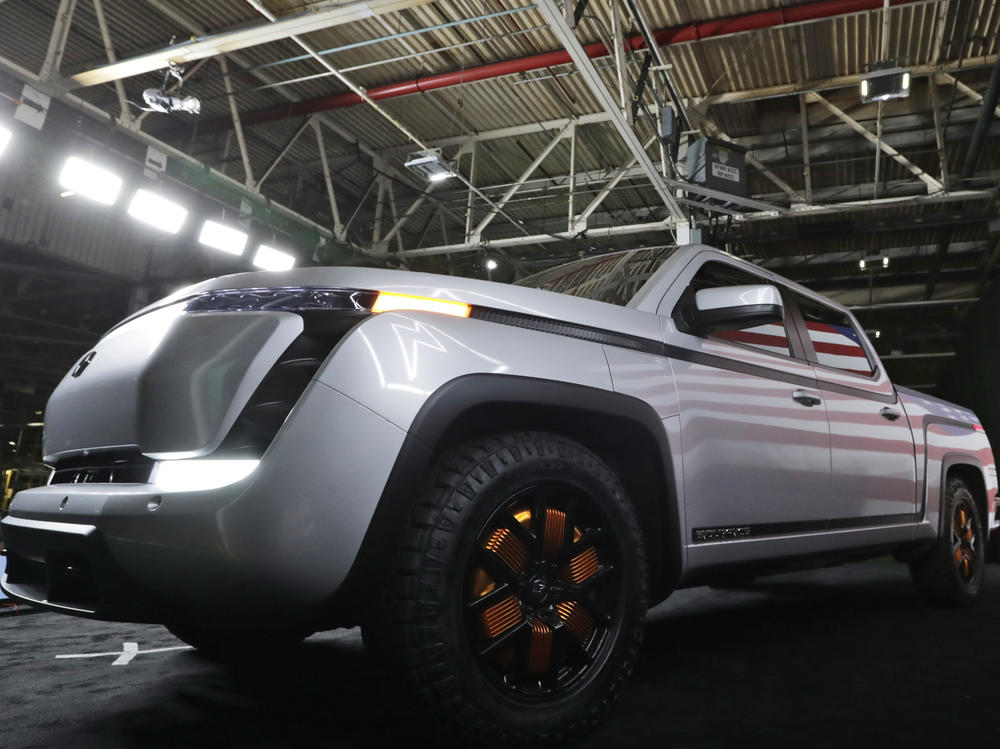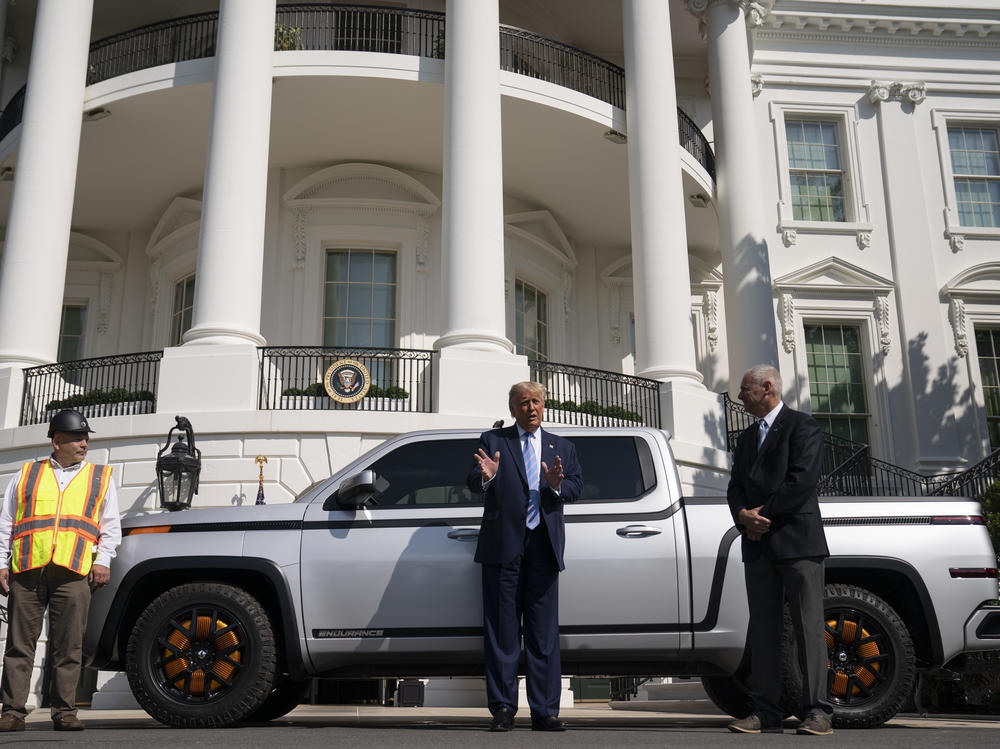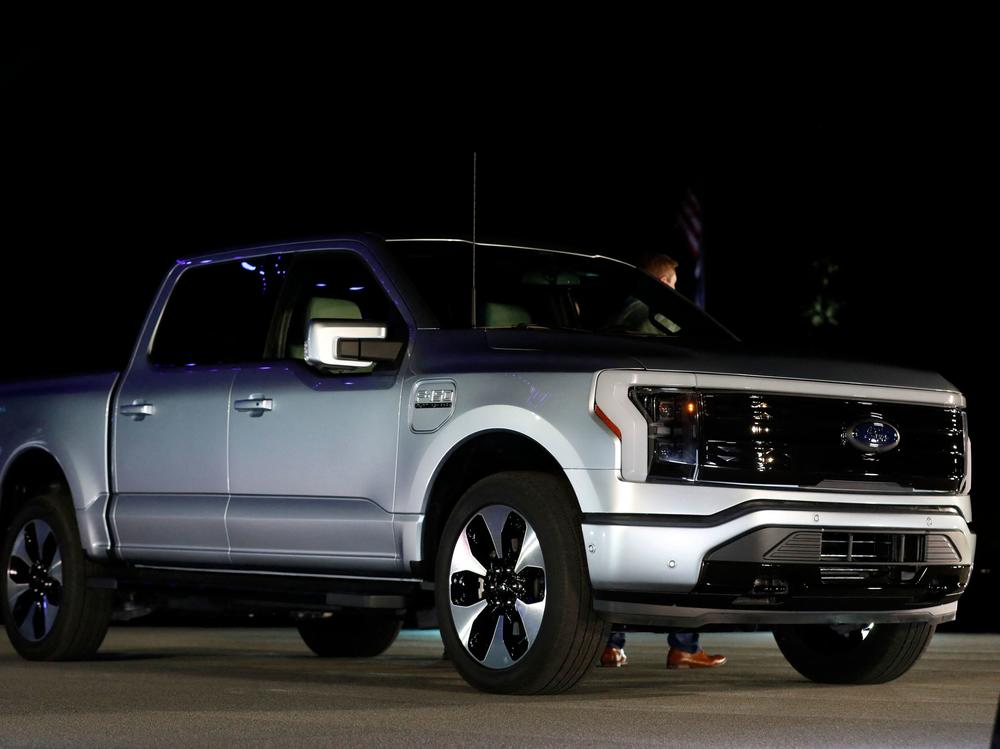Section Branding
Header Content
Startups Like Lordstown Wanted To Upend The Car Industry. It's Now Do Or Die For Them
Primary Content
Lordstown Motors launched with huge ambitions — and a redemption story. Today it's scrambling for cash and trying to assuage investor anxieties.
The stumble of the much-hyped electric truck manufacturer offers a glimpse at the do-or-die moment facing many electric vehicle startups. They successfully sold an idea to investors. But now can they actually deliver vehicles to buyers?
It all started when the electric truck startup bought the giant Lordstown, Ohio, auto plant that General Motors had just shut down.
The new company literally named itself after the factory, promising to bring jobs back to the devastated community, while launching the first electric pickup and taking over a huge swathe of the work truck market.
"Everybody loves a moonshot," founder and CEO Steve Burns told NPR in January 2020. "And we are a moonshot, but we've been in orbit at least."
It was bathed in hype, including an unveiling with President Trump at the White House, and it was showered in cash from investors.
But production timelines kept getting delayed. This spring an investment firm that had bet Lordstown stock would fall accused the startup of fraud for overhyping its preorders and setting unrealistic timelines. And last month Ford unveiled an electric version of the F-150, which will compete head-to-head with Lordstown's vehicle and is promising to undercut its price.
Then Lordstown revealed it needed even more cash to actually produce its vehicles, and was at risk of going bankrupt within a year. And this week it admitted that some preorders had been exaggerated — and the CEO and founder, along with his chief financial officer, abruptly resigned.
Shares tumbled, and analysts like Jaime Perez at brokerage R.F. Lafferty revised their expectations sharply downward.
"When something like that happens, you have to have a little caution," Perez says.
The company insists it's still on track.
"What's not changing is our plan to start limited production in late September," new executive chairwoman Angela Strand told the Automotive Press Association on Tuesday. "It's a new day in Lordstown, and there are no disruptions — and will be no disruptions — to our day to day operations."
Lordstown's stock recovered somewhat after Strand's confident statements, but they are still down nearly two-thirds from their high point.
At an event for media and investors next week, the company will be showing off its pickup truck — the Endurance, a truck designed specifically for fleets that relies on unique hub motor technology, with a separate motor for every wheel.
But at this point, the big question isn't just whether Lordstown can make an appealing pickup. It's whether it can successfully make that truck in high volumes as well as make a profit doing it — and many investors are skeptical.
Lordstown is not the only one coming under the microscope.
Electric vehicle startups were Wall Street darlings as investors hoped that each company would be the next Tesla, but now are being met with mounting skepticism.
It's very difficult to mass produce a vehicle. Tesla, famously, had no shortage of struggles getting started.
However, Tesla had time to figure it out — the rest of the auto industry was skeptical that electric vehicles could be profitable, and Elon Musk's company faced no real competition.
That's not the case for today's start-ups, which are competing not just with Tesla but with auto giants like Ford, General Motors and Volkswagen.
As the big companies increasingly go electric, they're bringing the built-in advantages of huge factories and workforces, deep pockets and boatloads of engineers.
So new electric vehicle startups need to prove they can deliver on their hype. Some are scrambling. Both Nikola and Canoo swapped their CEOs out recently; Nikola also canceled its electric pickup plans while Canoo revamped its entire business model. Plenty of other startups have delayed their launches.
"Through the next couple of years, the industry is going to start shaking the weak players out," Perez said. "And the market now may look drastically different from the market in a year or two."
Will Lordstown land on the top of the heap, or fall short?
For investors there's money on the line. For Ohio's Mahoning Valley, it's more than that. Lordstown offered the promise of some long-awaited good news. People really wanted it to succeed, and bring not just jobs but a jolt of optimistic energy.
Arno Hill, the mayor of the village of Lordstown, said this week that the town is trying to diversify so it isn't so dependent on a single plant for its employment. He noted GM's new battery factory, as well as a power plant. But he also wouldn't write off the possibility that Lordstown could come roaring back.
"We're holding our breath, waiting to see what happens and hoping for the best," he said.
Copyright 2021 NPR. To see more, visit https://www.npr.org.



